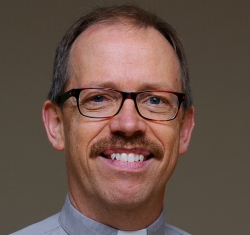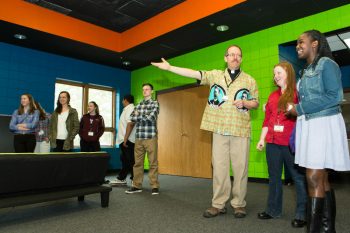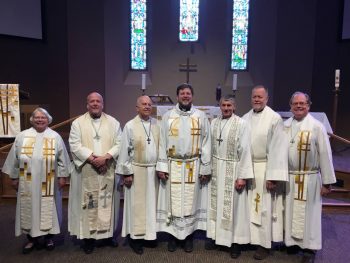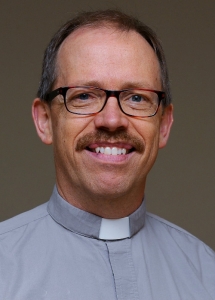 By Pastor John Hulden
By Pastor John Hulden
Today I had the privilege to take four pastors out to lunch so we could talk about – can you guess? – starting a Peer Group!
Hey, how’s your peer group coming along? Isn’t it amazing to pray, support, and learn together?
(By the way, my offer still stands: I’ll take you and a colleague or two out to lunch to talk about starting a peer group!)
All four of these pastors I took out to lunch are new to their calls here in the Minneapolis Area Synod. They each shared their vocational journey and talked about camp directors and campus pastors and others who encouraged them to pursue ordained ministry.
ONE OF THOSE rostered ministers, Pr. Elizabeth Felt, just moved here from the Seattle area. She has received a very warm welcome from the good folks at Advent Lutheran in Maple Grove. Elizabeth shared that Pastor Dan Erlander encouraged her to go to seminary. That brought a smile to my face. Dan Erlander is one of my heroes. And I know that Dan has made a habit of that kind of specific encouragement.
“How about you? When did you first sense a call into ministry?”
You might know Dan Erlander by his amazing summaries of deep Lutheran thinking in the form of easy-to-read, cartoon-filled publications like Manna and Mercy and Baptized We Live— with Bowling Pin People!
My personal favorite is It’s All About Love. You can download this four-page gem. (It is a free download; Dan is also generous!)
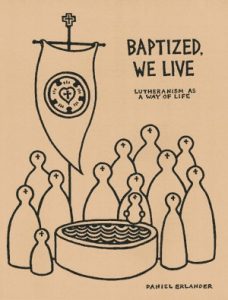
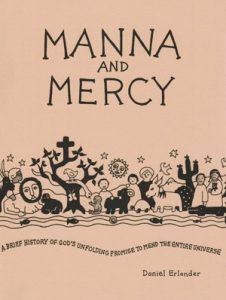
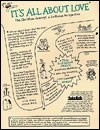
A number of years ago, I took a group of first-call pastors to meet Dan. I listened as these new pastors had a wide-ranging conversation with him. One of the pastors asked, “When did you first sense a call into ministry?” I remember Pr. Erlander thinking a bit, and then he calmly replied, “Oh, about seven years after I was ordained.”
That is quite an answer.
How about you? When did you first sense a call into ministry?
On another day, I’m guessing Dan might answer: When I was baptized (since ministry takes so many different forms).
This Saturday, I plan on celebrating with Chris Wogaman at his ordination at Salem English Lutheran in Minneapolis. Yep, it’s on April Fool’s day. Chris has a sense of humor. He has to; he’s waited about nine years for a call.
THIRTY YEARS AGO on April Fool’s Day 1987, first thing in the morning, I went to Patty’s house on the Eastside of Saint Paul, and picked up the keys to Bethany Lutheran Church. (Patty’s husband was the treasurer of that little congregation.) I took those keys and began pretending I knew what I was doing as a pastor.
Why would I do such a crazy thing? Because I too was encouraged. By many people. I still feel that encouragement. I hope you do too.
Here are some prayers you can use to help your community in their work of “encouragement”:
Christ Jesus, head of the church, raise up from among the baptized pastors to preach your word and administer your sacraments; deacons to serve all people and bear your gospel to the world; and congregational leaders to bring vision and vitality to your people. Grant us the grace to identify those in our midst you are calling, courage to name their gifts, and opportunities to gently nurture and support their discernment. God of mercy. Receive our prayer.
O God, you make your love known in Jesus Christ. We thank you for loving your church so much that you send the Holy Spirit into the hearts of children, women, and men so that they know themselves called to be pastors and deacons and leaders for congregations and the church. Bless your church with an abundance of leaders. And as we are bold to believe that you will raise up pastors, deacons, and leaders from this congregation, ready our hearts to nurture their faith, celebrate their call, and support their preparation for ministry. God of mercy. Receive our prayer.
O God, you so love the world that you sent Jesus, and our world so needs your love. With the whole Church we implore you to call forth pastors, deacons, and congregational leaders to lead us in bearing Christ to all the world so that the world may know your love. We pray especially for those in this faith community the Holy Spirit may be nudging to public ministry in the church and Christ-like service in the world. God of mercy. Receive our prayer.
“One of the pastors asked, ‘When did you first sense a call into ministry?’ I remember Pr. Erlander
thinking a bit, and then he calmly replied, ‘Oh, about seven years after I was ordained.'”
Lord Jesus, we pray for congregations in the call process and for the pastor you will send them. We pray for those outside the church who will come to know Jesus through ministry in his name and for the deacon you will send to serve them. We pray for our congregation’s future and for the leaders you will call forward to guide us. Embolden us to invite those in whom we experience gifts for these ministries to prayerfully consider your calling, and give us generous spirits to support them. God of mercy. Receive our prayer.
We give you thanks, O God, for the children in our midst – especially those in elementary and middle school. We pray that as they grow, they will hear your voice calling them into your service – in the church, in the world, for the sake of their neighbors. Help them to imagine being pastors and deacons, church council leaders, Sunday school teachers, mentors and community leaders. Give them courage to say yes to your call, O God. We pray in gratitude and boldness in Jesus’ name. Amen.
Thank you to the members of the Conference of Bishops for providing these prayers. I am grateful to know there are church leaders still thinking about making space to hear the call into ministry.
 By Bob Hulteen
By Bob Hulteen
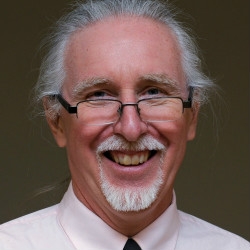

 By Rev. Craig Pederson
By Rev. Craig Pederson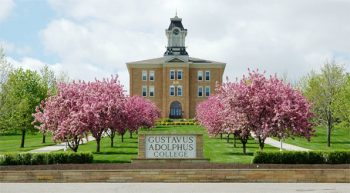
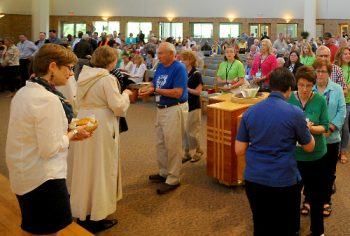 The business agenda will include budget adjustments and constitutional changes, as well as discussion of one resolution (engaging our Muslim neighbors). Since there are fewer resolutions than recent years, synod leaders are planning table discussions around a couple of issues that are before many of our congregations – racism and sanctuary congregations. Everyone has a voice in these conversations.
The business agenda will include budget adjustments and constitutional changes, as well as discussion of one resolution (engaging our Muslim neighbors). Since there are fewer resolutions than recent years, synod leaders are planning table discussions around a couple of issues that are before many of our congregations – racism and sanctuary congregations. Everyone has a voice in these conversations. By Pastor John Hulden
By Pastor John Hulden




